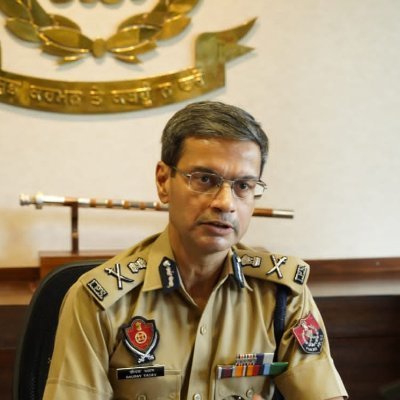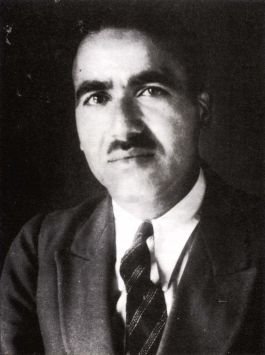With special reference to inquiry of Kotkapura and Behbal Kalan Firing Incidents of 2015
'Rule of Law is an essential attribute of democratic governance of a country. The literal meaning of Rule of Law is a governance according to law and nobody is above the law. Law in this context can be defined as a set of rules and principles which govern the external behaviour of the human beings and which is recognized and applied by the State in the administration of justice. The Constitution of India has adopted and incorporated the concept of rule of law in its true sense. In fact, we see the predominance of the Rule of Law in the entire fabric of the Indian Constitution. Supremacy of the Constitution, Equality before the law, Fundamental freedoms, Principles of Judicial Review, Independence of Judiciary etc. are enshrined in Indian constitution.
After independence, India adopted Parliamentary Democracy in which Principle of Separation of Power was not strictly enforced because the parliamentary system demands the executive to be an integral part and parcel of legislature, with executives majority in the Lower House. It has strengthened the position of ruling politicians who have been unduly enjoying both legislative as well as executive powers. Moreover, even after 71 years of independence the authoritative colonial administrative and police apparatus have immensely enhanced their power and position beyond imagination.
In India, politics is taken as a profession which doesn't require any academic or educational qualification etc. One just needs required age, solid financial muscle to incur huge expenditures and manpower to manage the election show. The political profession that requires little qualification and unlimited power, obviously attracted the rich and their allies who have gradually established their monopoly over the politics. The lack of autonomous and democratic administrative and police apparatus strengthen their position manifold. Now, this class of politicians, having feudal values, consider themselves above the law and law unto themselves. This article is an effort to explore the hard realities with special reference to Kotkapura and Behbal Kalan firing incidents on October 14, 2015.
Kotkapura and Behbal Kalan Firing Incident
In October 2015, protests broke out after some incidents of sacrilege of holy book (Shri Guru Granth Sahib Ji) in various parts in Punjab. The failure of state machinery to identify and bring offender to justice resulted in the blocking highways and roads by the protesters in Punjab. The state was brought to a standstill in October 2015. Subsequently, the police used the force to evacuate the highways and roads. Two incidents of firing came into light at that time- one in Kotkapura and the second one in Behbal Kalan. Two protestors lost their lives and more than 50 got injured in the police firing incidents. These two police shootouts soon became a questionable, controversial and debatable issue that attracted huge worldwide attention.
Justice Zora Singh Commission and Special Investigation Team (SIT)
The then Shiromani Akali Dal-BJP Government led by Parkash Singh Badal ordered the inquiry by a high court judge to probe the desecration and the incidents of violence in its aftermath. The task of probe was given to Justice (Retd.) Zora Singh. Simultaneously, the Punjab Government also constituted a Special Investigation Team (SIT) lead by Iqbal Preet Singh Sahota (the then ADGP Crime), Amar Singh and Ranbir Singh Khatra (DIGs) to track down the culprits.
Justice Zora Singh Commission and SIT, both failed badly in the task assigned to them as both couldn't even identify the culprits. It intensified the anger of the protesters who were demanding justice. Subsequently, the SAD-BJP Government transferred the case to CBI. However, the Zora Singh Commission expressed Behbal Kalan Firing as absolutely unwarranted in his report and tried to pacify the protestors with these three recommendations:
Compensation of Rs 25 lakh to the next of kin of Krishan Bhagwan Singh and Gurjeet Singh, who died in the police firing at Behbal Kalan, and a job to one of the family members each.
Rs 10 lakh compensation to Ajit Singh and Beant Singh, seriously injured in police action in Behbal Kalan and Kotkapura
A claims settlement tribunal to be set up to settle claims of those whose properties and possessions got damaged in the police action.
Justice Ranjit Singh Commission and Special Investigation Team (SIT)
In March 2017, The SAD-BJP Government was replaced by Congress Government. The new government led by Capt. Amarinder Singh appointed another Commission of Inquiry into the sacrilege cases and firing incidents of 2015 under Justice (Retd.) Ranjit Singh. The Commission was popularly known as Justice Ranjit Singh Commission. The report of commission was placed in the Punjab assembly and the Punjab Government declared to withdraw the investigation of sacrilege incidents of Sri Guru Granth Sahib from CBI. In accordance with recommendations of Justice Ranjit Singh Commission, the Punjab Government also constituted a five-member Special Investigation Team (SIT) to probe the Kotkapura and Behbal Kalan firing incidents and related sacrilege cases in 2015.
The SIT comprised of five police officers namely, Prabodh Kumar ADGP/ Director- Bureau of Investigation as its head, Arun Pal Singh (IG Crime), Kunwar Vijay Pratap Singh (IG Crime & Head OCCU), Satinder Singh (SSP, Kapurthala) and Bhupinder Singh (Commandant, PRTC) were entrusted with the task of probe. Although the Punjab Police as a whole doesn’t have good image in the public but every individual police officer does carry his own personal image and reputation. The hope of justice surfaced among the masses because of good and clean image of SIT members. A prominent political analyst Jatinder Pannu, the Chief Editor of Nawan Zamana, in an interview to a TV Channel, claimed that SIT would certainly bring tangible results. He even discussed the working of Prabodh Kumar and Kunwar Vijay Pratap Singh with great positivity. Significantly, the selectors of members of SIT team have very intelligently chosen the members who can certainly give appropriate result if allowed to function without any pressure and fear.
Politicians v/s Kunwar Vijay Pratap Singh
The inquiry of Kotkapura and Behbal Kalan firing incidents intensified the controversy between politicians and a public servant namely Kunwar Vijay Pratap Singh, a senior IPS officer of Punjab Cadre. Kunwar Vijay Pratap Singh is one of most honest, upright, courageous, daring and highly educated police officer who is hardly liked by unprincipled and corrupt politicians- either ruling or opposition. He was transferred unceremoniously from post of SSP Amritsar by SAD-BJP Regime, Police Commissioner Jalandhar just after 69 days by SAD-BJP Regime and Police Commissioner Ludhiana immediately after 38 days by Congress Government because he refused to bend down to the unprincipled and corrupt politicians.
The induction of Kunwar Vijay Pratap Singh in SIT alarmed some politicians as well as policemen because of his unmanageable nature and impartial working. Few even approached Honourable Punjab and Haryana High Court against transferring the case from CBI to SIT, but the court expressed its faith in SIT by rejected the petition.
Rule of law or Rule of Politicians?
In beginning, the Akali leaders started giving statements that they will cooperate with SIT. But when SIT summoned Parkash Singh Badal, Former Chief Minister Punjab and Sukhbir Singh Badal, Former Deputy Chief Minster and Home Minister Punjab, the Akalis leaders began opposing Kunwar Vijay Pratap Singh openly by demanding his removal him from SIT. Parkash Singh Badal and Sukhbir Singh Badal, organized and addressed Press Conferences immediately after facing SIT and claimed that SIT had nothing to ask. Later, they openly made personal attacks on Kunwar Vijay Pratap Singh. They also raised new slogan We will not cooperate with SIT & We will boycott SIT".
This episode has raised very serious questions before the public- whether we have Rule of Law or Rule of Politicians in India? In case of an ordinary citizen, such things are possible? Does a citizen have a choice to cooperate or not to cooperate or ˜boycott police inquiry in the course of law? Why these politicians want VVIP treatment and considered themselves above the law? Is this kind of thinking of our politicians not a serious threat to our democracy? Is it not the high time for masses to recognize the real threats to our democracy for better tomorrow?
Kunwar Vijay Pratap Singh































































